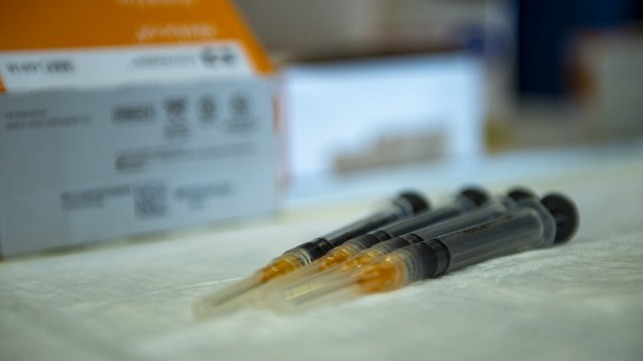Germany and Cyprus Join Efforts to Vaccinate Seafarers

Among the efforts to mark the International Day of the Seafarer, the port of Hamburg and Cyprus both announced efforts to expand COVID-19 vaccinations to seafarers. The issue of how to provide vaccinations for seafarers working on ships has been one of the most highlighted industry challenges on this day along with the problems of crew changes brought on by the pandemic.
The German Shipowners’ Association (VDR) highlighted the depth of the problem. Ralf Nagel, Chief Executive Officer of the VDR, and Christoph Ernst, Secretary General of the German Seamen’s Mission, discussed the challenges of getting vaccines to seafarers. They said of the 1.7 million seafarers across the world, roughly 900,000 come from countries in which vaccines may not be widely available before 2024.
Many of the nations that are home to seafarers have limited supplies of the vaccine prompting impassioned pleas to include crew members among the priority lists. Indian, for example, recently said that it would seek to accelerate vaccinations for seafarers due to start their contracts aboard ships. However, the other part of the problem is the seafarers working aboard ships today. Many nations faced with limited supplies of the vaccine are prioritizing distribution to their citizens.
David Heindel, Chair of the International Transport Workers’ Federation’s Seafarers’ Section in his statement for the Day of the Seafarer said all the recognition activities were meaningless until seafarers received vaccines and had their rights restored. The ITF in its statement renewed calls for vaccine patent waivers along with asking nations to buy vaccines for all seafarers living in their countries or due to call in their ports by the end of 2021.
The VDR and the German Seamen’s Mission said that Germany must adopt the resolutions of the International Labor Organization and called for efforts similar to other countries that have set up vaccination programs for seafarers. The German organizations calling for vaccination centers for seafarers in all larger port cities.
Starting at mid-day today, the Hamburg Port Health Center announced that it started an ongoing program of offering vaccinations for seafarers of all nations whose ships are berthed in Hamburg. The VDR and the German Seamen’s Mission welcomed the start of the vaccination campaign in the Port of Hamburg as an important signal. “There needs to be this kind of offer to vaccinate the men and women onboard ocean-going vessels regardless of nationality in all German ports,” demanded Ralf Nagel, Chief Executive Officer of the VDR, and Christoph Ernst, Secretary General of the German Seamen’s Mission.
The Shipping Deputy Ministry in Cyprus also announced that it will be starting a program to provide vaccinations to seafarers. Cyprus had been an early proponent of vaccination programs for seafarers and in February proposed a framework for how they could be administered. In the circular the ministry issued today, they said starting July 1 Cyprus would provide vaccinations at no cost to the seafarer.

that matters most
Get the latest maritime news delivered to your inbox daily.
While they said that the preferred option remains providing vaccinations in the country of residence, Cyprus recognizes the challenges for seafarers current aboard ship. On a first come first served basis, Cyprus is offering vaccinations for the crew working on ships registered in Cyprus and managed by Cyprus companies. The shots will be provided at ports on Cyprus, anchorages, or roadsteads located within the territory of Cyprus.
These two new programs follow similar initiatives that have been launched in other parts of the world. Seafarers working aboard ships have been able to receive their vaccinations at ports in the United States and U.S. health care organizations have been working with the shipping companies, including the cruise lines, to implement large-scale programs. The Netherlands announced a program for seafarers working on Dutch-flagged ships, and Belgium recently began inoculation programs for seafarers. It is hoped that more countries will follow these models so that more seafarers will have access to the COVID-19 vaccinations.
